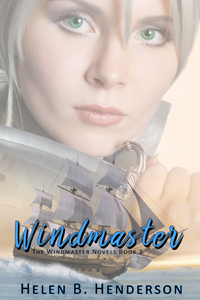 |
| Click for comic mystery antics. |
 |
| My wife (kinda, sorta) avoiding arachnids in the jungle (what she doesn't know won't kill her.) |
So, for obvious reasons, people thought we were crazy for going to the jungle.
 |
| My wife, um, enjoying the floor. |
 |
| Victor standing at ease and defying gravity in our boat. |
A good larf was had by all (except for me and my wounded pride. Not to mention my wounded posterior).
Falling isn't anything new for me. Gravity and balance are not my friends. While escorting us across wooden planks to the local jungle health clinic, Victor remarked on one of our cohorts' very good balance. I said, "I think she has better balance than me."
Victor readily agreed. "Much better," he said. "Much, much better."
 |
| Of COURSE nature just loves Victor. |
Back to that health clinic... The Yanamano Clinic--a small, humid building just off the river--is run by a doctor from Wisconsin and services the locals (or at least those who've embraced Western medicine). The doctor, understandably frustrated by the government's lack of aid, caring and health care, ripped through a list of her recent patients and their alarming ailments. Needless to say, machete wounds topped the list. A sobering (and sweltering) visit, it truly made me grateful for what we take for granted in the States.
Solar-powered (and without air conditioning, natch), the small operating room was a sparsely lit hot-box where the doctor sweats over her patients while sewing them up. Recently, a fan had been installed (a huge deal) and a bright light bulb had been donated (again, victory). Doctors Without Borders swung by one day with good intentions and big ideas, but little could truly be done. It's a very bleak situation for both the locals and the doctors because help doesn't come from many places. And the locals are uneducated about their own ailments and what modern medicine can do for them.
Later, I was told this was one of the better clinics. At least there weren't holes in the ceiling.
On the way out of the clinic, I made a big mistake, a huge one.
As we left the clinic, I held the door open for everyone because Mom taught me to be a gentleman. Our boat driver, Walker, glared menacingly at me as he slowly walked through my proffered opened door. Victor, our guide, actually stopped dead in his tracks, stared at me. He opened his mouth to say something, then shook his head and hurried through the door. Hands flailing, they chatted animatedly and angrily back to our boat. Clearly I'd done something to offend them.
Only later did I realize my whoopsie moment.
The culture of Peru is muy machismo. Men are men and the very mention of a "metrosexual" will get you beat up. Men drive motokars and women work in the kitchen, end of story. However, the men are fooling themselves, for women truly rule the roost. It's a very sexist culture, but only superficially so. Regardless, men take their manly manliness very manfully.
Things weren't right between Victor and myself until the end of the trip.
 |
| Friendsies again! (L to R: My wife, Victor, me, Jungle Momma Connie) |
Speaking of odds, what're the odds Wendell Worthy can race against time to save his brother's life by running through downtown Kansas City in his underwear? Not very good! Find out in my comic thriller, Chili Run.
 |
| Laughs and thrills just a click away! |











































